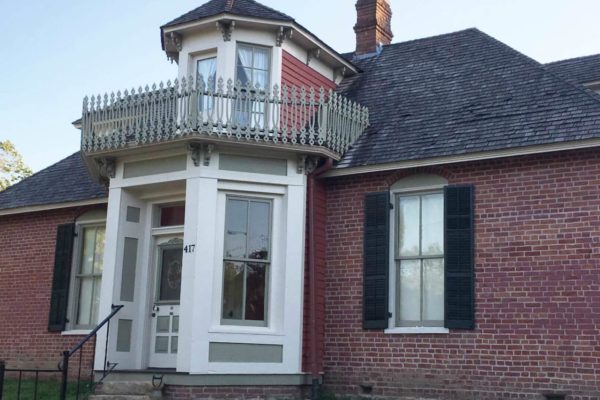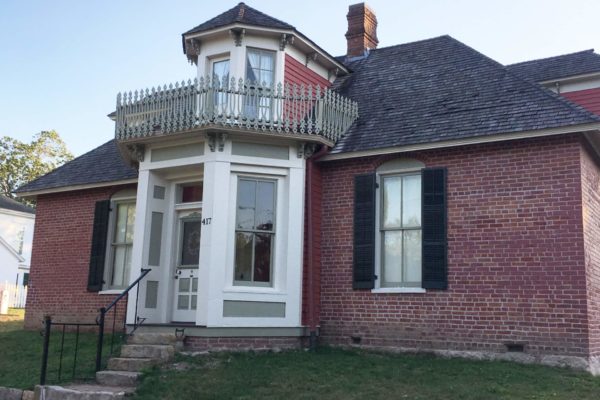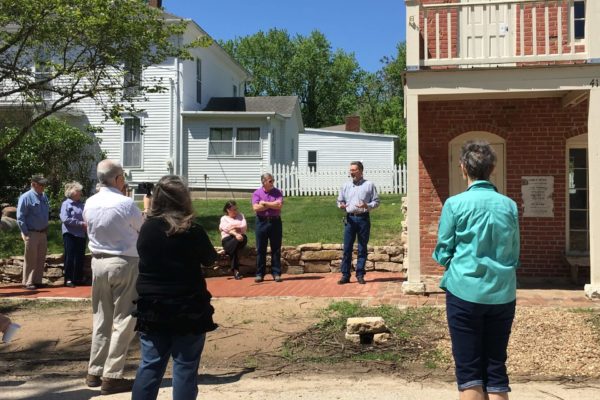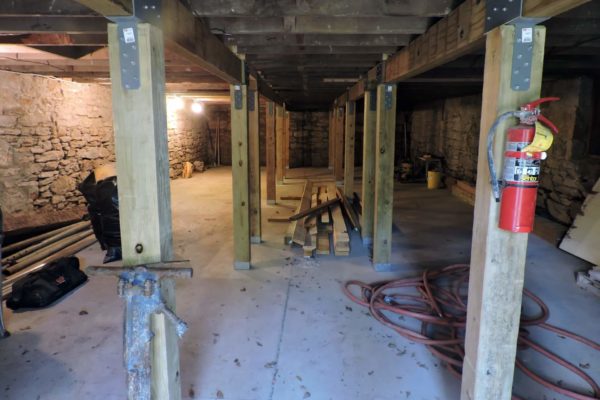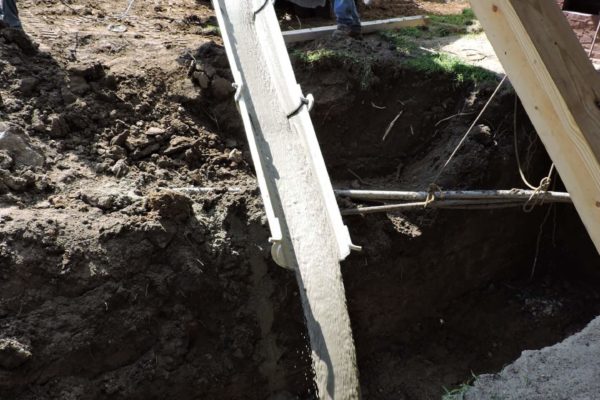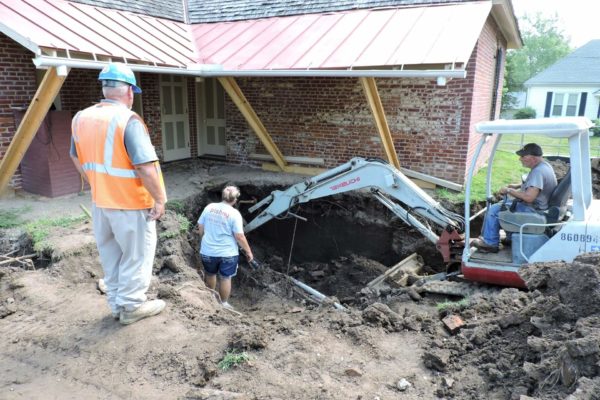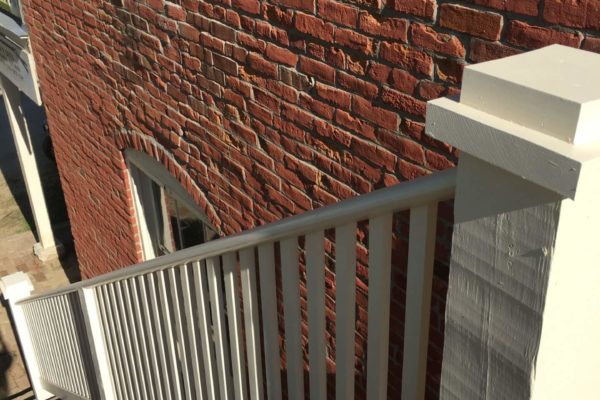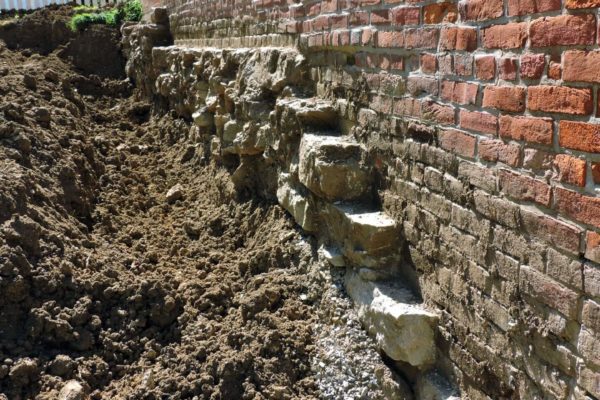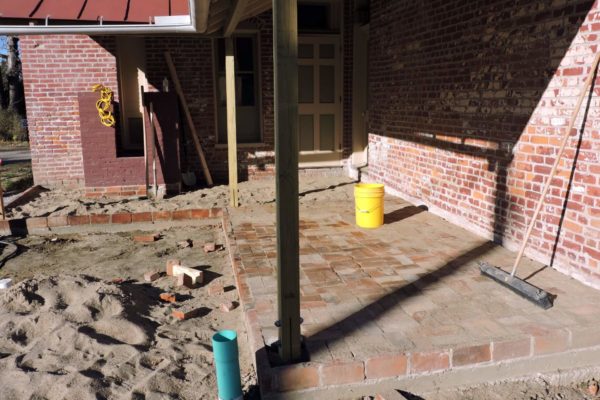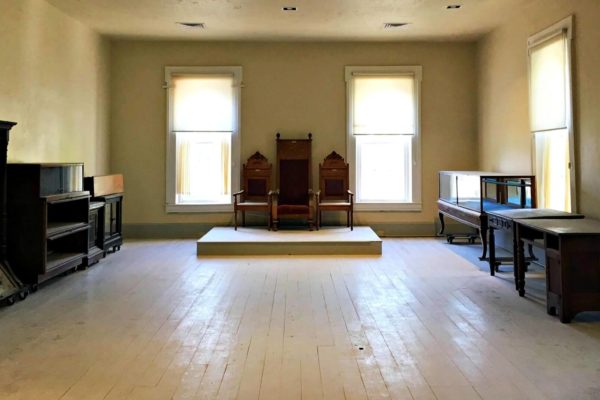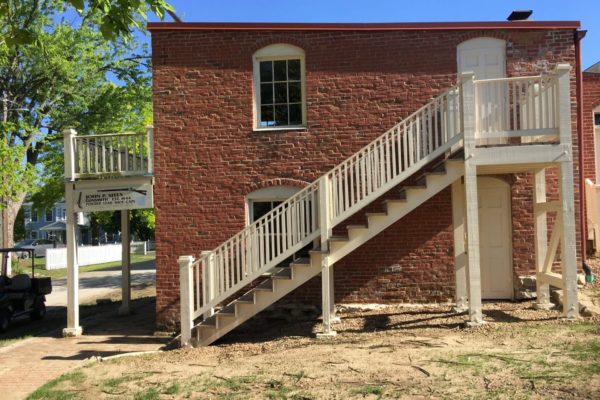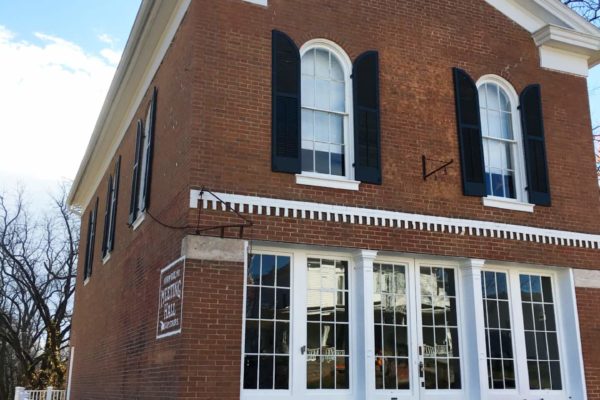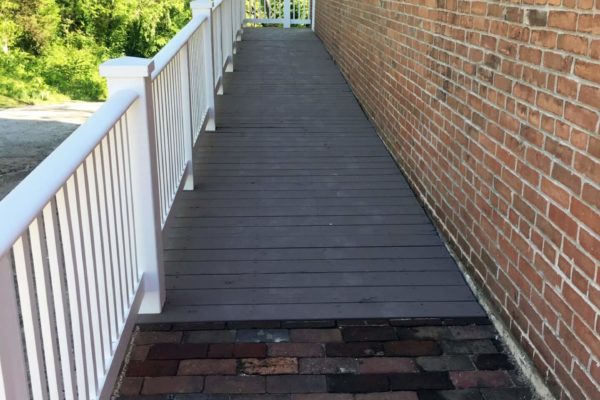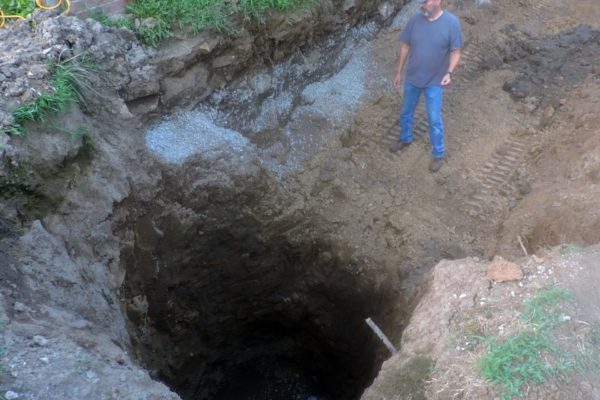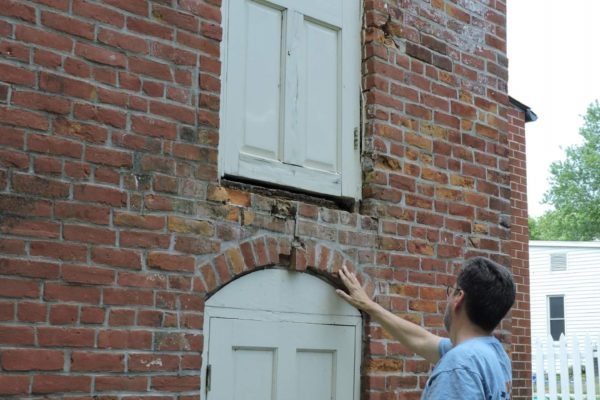Founded in 1829 on the flint-bearing bluffs overlooking the Missouri River Valley near a ferry crossing of the Santa Fe Trail, the historic Village of Arrow Rock boomed in the early 19th century, but with the shift of the river, two devastating fires, and an economy that depended heavily on trade with the South, it declined after the Civil War to become a footnote in history.
The Daughters of the American Revolution got the preservation movement started in Arrow Rock when it restored the J. Huston Tavern in 1926. In 1959, the nonprofit Friends of Arrow Rock was formed to preserve more of the town’s historic buildings and related artifacts, encourage cultural and arts activities, and promote visitorship.
Today the site is a major tourist attraction, drawing over 100,000 annually. The entire village has been designated as a National Historic Landmark. But it is also a living community, with several dozen permanent residents, many seasonal homes, and lots of volunteers and supporters from throughout the state and across the nation.
In 2010, the Friends of Arrow Rock was awarded a Jeffris Heartland Fund grant of $25,000 to cover half the cost of historic structure reports for five of its historic buildings. That study was then used to formulate and guide a capital campaign strategy, which was in 2012 launched with a $230,000 Capital Campaign Challenge Grant from the Jeffris Family Foundation, on condition that Friends of Arrow Rock raise matching funds totaling $460,000 within three years.
On schedule, that challenge was met in 2015, and work has begun on a project that will protect and stabilize four of the 13 historic buildings owned and operated by the Friends. When completed, the IOOF Lodge Hall (1868) will continue to house printing exhibits on the first level and offer an assembly venue in an authentic lodge hall setting upstairs; the Masonic Lodge Hall (1868) will continue to house the Arrow Rock Craft Club and the second floor will be prepped for future use as a meeting room; and the John P Sites House (1830s/70s) and adjacent Sites Gun Shop (1840s) will continue to interpret the life and work of this prominent frontier gunsmith.
The Jeffris Family Foundation is pleased to be in a partnership to preserve and develop such an important Midwest historic community.


